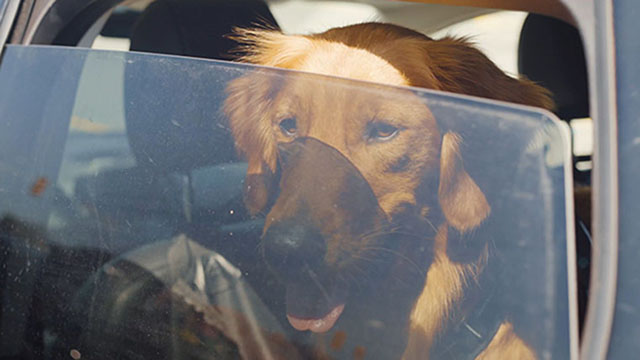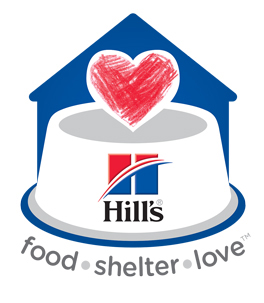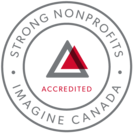|
Advocating for animals during COVID-19... read more |
|||
| If you do not see the full page with images, please click here. | |||
|
Fevered Demand |
|||
|
During the public health crisis, pet ownership rose substantially, and there are a few pitfalls that have come with it such as pet buyers unintentionally supporting irresponsible breeders and unmanaged challenging behaviours emerging in freshly acquired, under-socialized dogs. Another problem that has reached crisis levels is a lack of veterinary care — and it's not a problem that will be easily solved. Aside from a growing wave of pet owners in need of a veterinary care, veterinarians and veterinary technicians are also experiencing unprecedented levels of burnout and the number of new professionals entering the industry year-over-year has largely remained flat. It's a bubble ready to burst, irreversibly damaging the health and well-being of professionals and leaving more and more pets without veterinary care. With a problem this big, where should someone begin? Increased personal responsibility as pet owners is a great place to start, and it begins before acquiring a pet. Choosing to adopt a homeless animal is the best way to acquire a pet. Sterilizing a pet ensures they will not contribute to pet overpopulation. Increased attention to pet safety like not leaving them in a hot vehicle, ensuring they are secured on harness and leash whenever outdoors, providing consistent exercise and nutrition, and more reduces the risk of the pet needing emergency medical care. The OHS does whatever it can to reduce the burden on veterinarians and veterinary technicians. Pets do not become available for adoption until they have been sterilized, vaccinated, health checked, behaviour checked, and had any outstanding medical needs treated or identified. The OHS regularly expands its veterinary services to treat more complex needs in Ottawa's homeless animals and provides essential services like sterilization and microchipping to the community, making these services more affordable and accessible to Ottawa's pet owners. The OHS is also investing in the future of veterinary technicians by offering work placements for veterinary students of Algonquin College and Collège Boréal. This hands-on experience helps better equip students entering the workforce to meet the challenges of their profession. Action at a personal and local level can make a difference, but the shortage of veterinary care is an issue across the country. The Canadian Veterinary Medical Association is also exploring ways to alleviate the crisis throughout the country. Pets will always need regular veterinary care, but there are ways current and future pet owners can help lighten the load and show compassion to those who save animals |
|||
|
Dogs Die in Hot Cars |
|||
|
Every year the OHS reminds the public of the dangers parked cars pose to pets and every year, dogs are still left in hot cars and are exposed to conditions that cause extreme suffering, brain damage and death. Dogs die in hot cars. Even if left alone for just a few minutes. Even if the window is cracked. Even if it doesn't seem to be that hot outside. The only way to protect your dog is to never leave him alone in a parked vehicle and to leave him safe at home whenever possible. If you find a dog trapped in a hot car, call 911. The dog is danger and needs immediate help. |
|||
|
Ontario Lags Behind Quebec in Protecting Animals |
|||
|
Last month, Quebec introduced progressive changes to its Animal Welfare and Safety Act. If the legislation passes, it will address some of the province's biggest and most long-standing animal welfare concerns. The updated legislation will prevent the use of prong collars, ban tail docking, ear cropping and declawing of cats, and eliminate the use of gas chambers for euthanasia. Prong collars are cruel and counterproductive. Cosmetic surgeries do nothing for the animal but cause pain. Declawing is inhumane and more accurately an amputation of a cat's final digit. Gas chambers are brutal for both the animal and the operator. The legislation also limits breeders to owning 50 dogs or cats. This is too many — a small puppy mill is still a puppy mill, and 50 dogs can produce a lot of puppies. But it is a step in the right direction. There is still room for improvement in Quebec's legislation, but it is far ahead of Ontario's protections for animals. If someone asks what more can be done in Ontario for the animals, simply point to Quebec. |
|||
| Thank you to our sponsors: | |||
|
|
|||
| Ottawa Humane Society 245 West Hunt Club Rd, Ottawa, ON K2E 1A6 donations@ottawahumane.ca | www.ottawahumane.ca |
|||
|
|
|||
|
The Standards Program Trustmark is a mark of Imagine Canada used under licence by the Ottawa Humane Society. The Humane Canada Accreditation Program mark is a licenced mark of Humane Canada used under licence by the Ottawa Humane Society. |
|||
| Privacy Statement Manage your Email Preferences |











